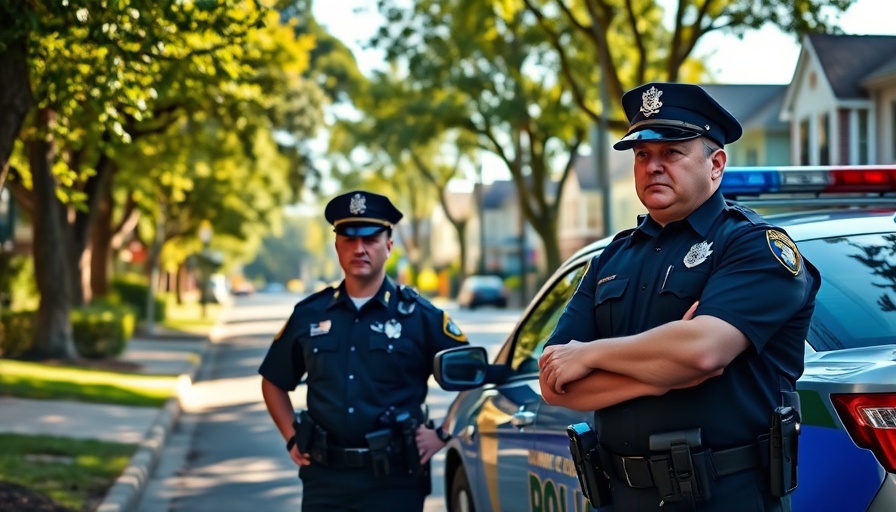
Political Fallout: Understanding the Raids on Ex-Trump Officials
In recent weeks, the political landscape has taken a tumultuous turn, marked by heightened tensions and escalating public discourse around former Trump officials. Notably, John Bolton, the former national security advisor, found himself in the spotlight after a raid on his home led to celebrations among certain factions of the MAGA movement. This event underscores a broader narrative of frustration and a sense of vindication among supporters who view Bolton's past as contradictory to their ideals. The commentary surrounding the raid raises critical questions about loyalty, accountability, and the rapidly shifting dynamics of American politics.
Celebration or Condemnation? The Divided Public Reaction
As news of the raid emerged, reactions were decidedly split across the political spectrum. For ardent supporters of the MAGA movement, the event symbolizes a triumph over an establishment figure they feel has betrayed their interests. Social media platforms lit up with comments like "How does it feel, John?" showcasing a mix of glee and schadenfreude at the perceived comeuppance of an individual they view as part of a larger problem within the political elite. Conversely, critics of the MAGA faction express concern that celebrating such events reflects a dangerous turn in political discourse—one where the line between lawful investigation and personal vendetta begins to blur.
Historical Context: A Cautionary Tale
To understand the current events, it’s essential to explore the historical precedent set by previous administrations. Raids and investigations into past officials have provoked a spectrum of responses, from detached interest to active political mobilization. For instance, during the Obama administration, there were numerous calls to probe actions by representatives of the Bush era, suggesting that such actions are not novel, albeit controversial. What differentiates today's climate is the intense polarization that characterizes American society. The overt celebration of a political enemy's misfortunes brings to home the reality of political tribalism where partisan lines dictate not just perspectives but emotional responses.
The Role of Media in Shaping Perceptions
The media landscape plays a pivotal role in how events like Bolton's raid are interpreted by the public. Coverage can either amplify the celebratory sentiments or serve as a counterbalancing view that fosters dialogue around the implications of such events on democratic principles. Organizations that prioritize sensationalism over substantive analysis may inadvertently contribute to a culture where“us versus them” thrives, further reinforcing divides. In an age where consumers can choose tailored news sources, the challenge lies in fostering critical thinking and dialogue that transcends partisan narratives.
Future Trends: The Evolving Political Landscape
Looking ahead, the implications of Bolton's raid—and similar future actions—might pave the way for an evolving political landscape. As investigations into former officials continue to unfold, we may witness increasing attempts by various movements to capitalize on such events to galvanize support or rally opposition. Political operatives and candidates are poised to leverage these moments to fuel narratives that align with their constituencies, all while grappling with the ethical ramifications of celebrating or vilifying public servants. The desire for accountability must contend with the realities of deep-rooted partisanship, raising imperative questions regarding how future generations of leaders will navigate the intricacies of public service and accountability.
Taking Action: Engaging in Political Discourse
The ongoing saga of political raids invites citizens to engage more deeply in their local and national discourse. It's an opportunity to reflect on how events are reported and interpreted, as well as the responsibilities of individuals to contribute to a dialogue that is constructive rather than divisive. Through local engagements, residents can influence the political climate beyond the events t that dominate headlines. Whether through community meetings, town halls, or even social media discussions, fostering understanding and collaboration may help temper the emotions that political events incite.
 Add Row
Add Row  Add
Add 




Write A Comment